Why You Shouldn't Download Free Proxy Server Apps in 2025
- Quick Guide: How to Safely Access Sites With a VPN in 3 Easy Steps
- 10 Reasons Why You Shouldn’t Download Free Proxy Server Apps
- How to Securely Access Sites and Services With a VPN
- Best Alternatives to Free Proxy Server Apps in 2025
- Our Methodology for Testing VPNs as Alternatives to Free Proxy Server Apps
- Free vs Paid Proxies: Advantages and Disadvantages
- FAQs on Using Free Proxies
Free proxy server apps might seem tempting, but they often come with serious risks to your privacy and security. Many of these apps collect and sell your personal data, inject malware into your device, or significantly slow down your connection speeds. Some even swap out the ads on websites with their own, which might lead you to harmful content.
After testing over 40 free and paid proxy services, I found that VPNs are a much safer and more reliable option. Unlike free proxies, trusted VPNs use strong encryption to keep your data secure, adhere to strict no-logs policies, and deliver fast, stable connections. Plus, they have reliable global servers, making it possible to safely access your favorite sites from anywhere.
ExpressVPN is my top choice for safe and private browsing. It comes with military-grade encryption that secures your data by making it nearly impossible for unauthorized parties to read or intercept. Besides, it has servers in 105 countries, letting you safely access the content you need. Better yet, you can try ExpressVPN without risk, thanks to its trustworthy 30-day money-back guarantee*. Editor's Note: Transparency is one of our core values at vpnMentor, so you should know we are in the same ownership group as ExpressVPN. However, this does not affect our review process.
Safely Access Your Favorite Sites >>
Quick Guide: How to Safely Access Sites With a VPN in 3 Easy Steps
- Download a VPN. I recommend ExpressVPN for its robust security features, vast server network, and excellent speeds. You can try it risk-free with its 30-day money-back guarantee.
- Connect to a server. Choose a nearby server to get the fastest speeds for browsing, streaming, and gaming without interruptions.
- Browse safely. You now have a secure, encrypted connection that keeps your online activities private.
Short on Time? Here Are the Best Proxy Alternatives in 2025
- Editor's ChoiceExpressVPN
Best overall VPN with robust security features to safely browse from anywhere.Checked out by 7000+ users last month - CyberGhost
Dedicated servers for torrenting, gaming, and streaming without interruptions. - Private Internet Access
Unlimited simultaneous device connections to safely access content on all your devices.
Editor's Note: We value our relationship with our readers, and we strive to earn your trust through transparency and integrity. We are in the same ownership group as some of the industry-leading products reviewed on this site: Intego, Cyberghost, ExpressVPN, and Private Internet Access. However, this does not affect our review process, as we adhere to a strict testing methodology.
10 Reasons Why You Shouldn’t Download Free Proxy Server Apps
Free proxy server apps might seem like an easy way to bypass restrictions or browse anonymously, but they often come with hidden dangers. Different types of proxies come with varying levels of risk:
- HTTP proxies handle web traffic but often lack encryption, leaving your data exposed.
- Transparent proxies fail to conceal your IP address, making tracking easier.
- SOCKS proxies, while versatile, may also lack built-in encryption, especially in older versions like SOCKS4.
As the saying goes, "If you're not paying for it, you're the product." Many free proxies are monetized via the exploitation of user data or by spreading malware. From privacy concerns to poor performance, these services can often do more harm than good. Here are 10 reasons to avoid them:
- Lack of privacy and security. Free proxy servers often lack strong encryption and can expose your data to hackers and snoops, especially on unsecured networks. Additionally, many free proxies don’t use HTTPS, which acts as a protective shield for your internet traffic. This is because the people running these free servers often cut costs and may even like to spy on your online activities themselves.
- Data logging and selling. Many free proxies log your online activities and sell this data to third parties for profit, compromising your privacy. Free proxies can also be exploited in DDoS attacks as traffic amplifiers or botnet components, or they can be used in man-in-the-middle (MITM) attacks to intercept and manipulate users' data.
- Limited bandwidth and speed. Free proxies typically have limited bandwidth and slow speeds, resulting in constant interruptions to your online activities.
- Intrusive ads and malware. Free proxy apps often come with intrusive ads, and they may even install malware and spyware on your device, posing significant security risks.
- Unreliable connection. Free proxies can be unstable, frequently disconnect, and often face IP bans from popular online services.
- Lack of customer support. Free proxy services usually don't offer customer support, meaning you’re on your own if you encounter issues.
- Geographical restrictions. Free proxies often have a limited server list, reducing your ability to access sites effectively.
- Risk of IP leaks. Free proxies may not provide proper IP masking, potentially exposing your actual IP address and compromising your location.
- No access to advanced features. Unlike VPNs, free proxies don't offer advanced features like kill switches, split tunneling, or ad blockers.
- Legal and ethical concerns. Using some free proxies can involve connecting through compromised devices or illegal networks, raising moral and legal issues.
How to Securely Access Sites and Services With a VPN
A VPN encrypts your internet traffic and hides your IP address, offering much more robust security than free proxy apps. It boosts your online security, prevents data leaks, and provides stable connections to safely access the content you need from anywhere. Here's how to do it:
Step 1. Choose a Reliable VPN
My top recommendation is ExpressVPN. It's the fastest VPN we tested, and it consistently allows you to safely access your favorite sites without interruptions. It also offers easy-to-use apps for many devices.
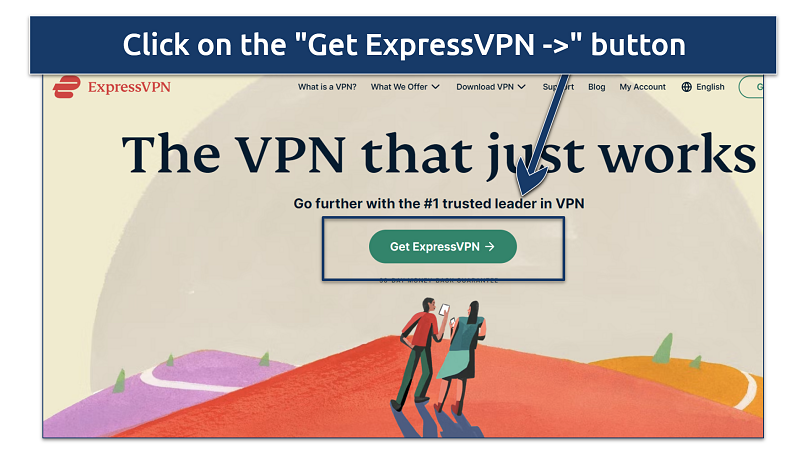 This will start the registration process
This will start the registration process
Step 2. Download the VPN
Choose a plan that suits you and complete the registration process. Download the app for your device — most VPNs offer apps for Windows, macOS, iOS, Android, and Linux. Some also support router configuration, allowing use of the VPN on smart TVs and game consoles.
Step 3. Connect to a Server
Open the VPN app and connect to a nearby server. Scroll the list to find one that’s geographically close to you (e.g., if you’re close to New Jersey, connect there). That way, your data doesn’t have to travel far, resulting in faster speeds.
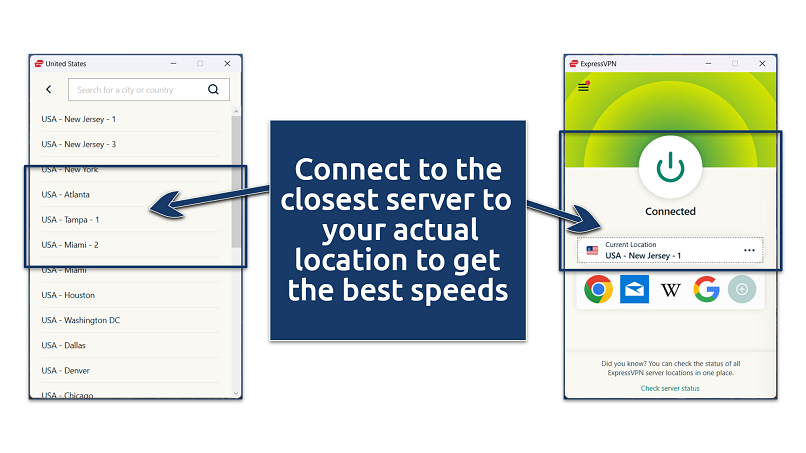 If you experience slow speeds or proxy errors, reconnecting usually resolves the issue
If you experience slow speeds or proxy errors, reconnecting usually resolves the issue
Step 4. Start Browsing
Once connected, you can securely access the sites you want from anywhere. The added encryption allows you to message on Telegram, stream YouTube videos, or play online iPhone games without exposing your data.
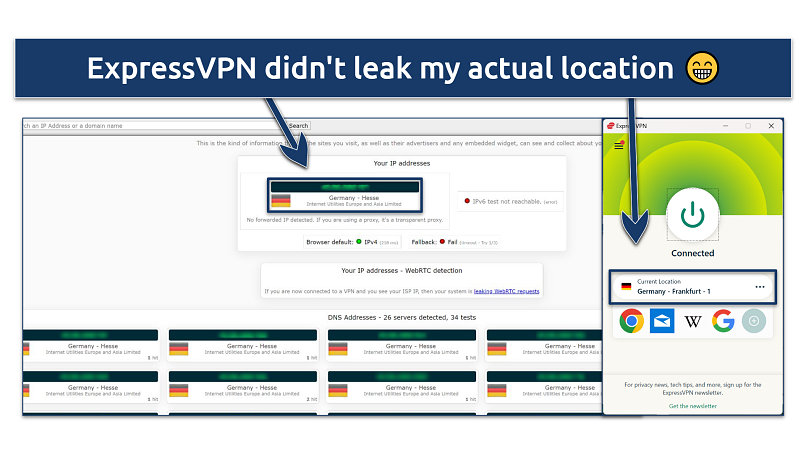 My IP and DNS address remained hidden as well
My IP and DNS address remained hidden as well
Editor's Note: Transparency is one of our core values at vpnMentor, so you should know we are in the same ownership group as ExpressVPN. However, this does not affect our review process.
Best Alternatives to Free Proxy Server Apps in 2025
Premium VPNs offer far better security, privacy, and performance than free proxy apps. The VPNs below have robust encryption, strict no-logs policies, and large server networks to protect your data and provide fast connections. They're also compatible with all major devices and operating systems.
1. ExpressVPN — Robust Security and Excellent Speeds for Safe and Uninterrupted Browsing

Tested April 2025
ExpressVPN protects your online activity with military-grade encryption and advanced security protocols. The in-house Lightway protocol provided the fastest speeds during our tests. We recorded only a 7% speed drop, which is impressive as many VPNs (not to mention free proxies) can slow you down by over 50%.
Its vast server network spans 105 countries, making it possible to safely access your favorite sites from anywhere. While ExpressVPN is pricier than some options, starting at $4.99/month, you get what you pay for in terms of security and performance. That said, you can try ExpressVPN risk-free, as it’s backed by a 30-day money-back guarantee.
- One of the fastest VPNs
- Works with top streaming sites
- A proven no-logs policy
- Limited customization
- Smart Location isn't always the fastest
2. CyberGhost — Optimized Servers for Reliable Streaming, Gaming, and Torrenting Anywhere
CyberGhost offers specialized servers optimized for various online activities. We tested its dedicated Netflix servers and watched Beckham in HD buffer-free. Its gaming servers provided low ping during our CoD tests, resulting in smooth gameplay. P2P-optimized servers are also great for safe and fast torrenting.
You can get CyberGhost for as low as $2.03/month. While monthly plans have a short refund period (only 14 days), longer subscriptions come with a generous 45-day money-back guarantee. This gives you plenty of time to test all its features for free.
- Secure access to streaming
- Military-level security
- Designed for ease of use
- Slower long-distance servers
- Doesn't work in China
3. Private Internet Access — Unlimited Simultaneous Connections to Safely Access Sites on All Your Devices
PIA lets you connect unlimited devices at the same time, which is great if your household has multiple devices. When testing PIA, we were able to stream content on 7 devices at once without any interruptions. It also includes a free SOCKS5 proxy with all of its subscriptions.
If you're not familiar with VPNs, PIA’s app might look a bit overwhelming. That said, the default settings are already optimized for streaming. You can get PIA for only $2.03/month.
- Many servers to choose from
- Customizable security settings
- Solid choice for torrenting
- Hit-or-miss customer support
- Tricky to navigate
Our Methodology for Testing VPNs as Alternatives to Free Proxy Server Apps
We rigorously tested popular VPNs to compare their performance against free proxy server apps. Our evaluation covered each VPN's capabilities for online protection and accessing sites and services. Speed tests were conducted across multiple server locations to assess performance impact.
If you want to try our top VPN recommendations for free, take a look at these guides:
Free vs Paid Proxies: Advantages and Disadvantages
Free proxies attract users with their no-cost access and ease of use, offering a quick way to bypass geo-restrictions or access blocked content. However, they often come with slow speeds, unreliable connections, and frequent disconnections. More concerning, many lack encryption, leaving users exposed to data theft and malware. Some free proxies even log and sell user data or inject malware-ridden ads.
Paid proxies offer faster, more stable connections, a wider server network, and stronger security features, including encryption. They also provide customer support, no ads, and higher uptime, ensuring a smoother and more reliable browsing experience.
Whether you opt for a free or paid service, proxies come with inherent security risks. When you use a proxy, it fetches web pages for you, and while websites only see the proxy's IP, the proxy can track all your online activities. This is concerning because you don't know who's behind the proxy — it could be run by cybercriminals, government agencies, or companies with questionable practices.
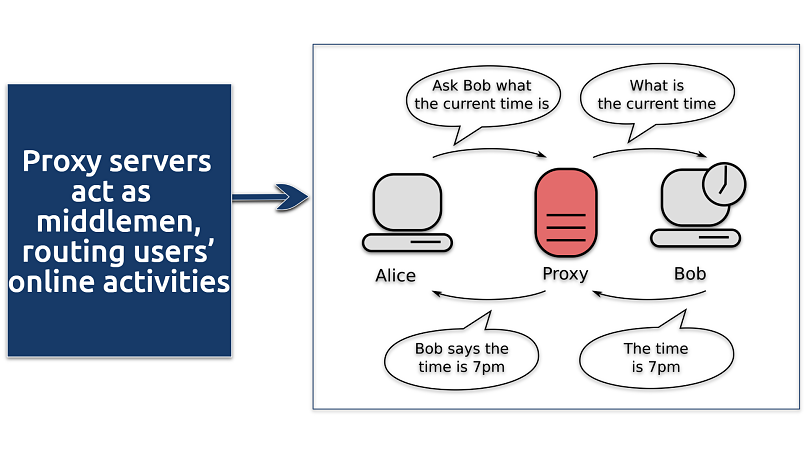 Proxies are simple to understand, but many don't realize the potential security issues
Proxies are simple to understand, but many don't realize the potential security issues
Another significant risk is cookie theft. Cookies store your login information, and some proxy operators might steal them while you're using their service. Normally, cookies are meant to stay private, but when you route through a proxy, you could unknowingly share them with the wrong people, compromising your sensitive information (like phone numbers, addresses, and login credentials).
There's also the risk of using open proxies, which allow anyone to route their traffic through your connection. This not only slows down your internet speed but could also leave you vulnerable to being linked to illegal activities.
For those focused on security and privacy, VPNs are often a better choice than proxies. VPNs fully encrypt your internet traffic, protecting all your online activities. They're also easier to use, with apps available for devices like smartphones and tablets. However, just like with proxies, it’s essential to choose a trustworthy provider and understand its data policies.
FAQs on Using Free Proxies
How can I find a reliable free proxy list?
Finding a genuinely reliable free proxy list is challenging. Most free proxy lists contain servers that are slow, insecure, or no longer functional. You can search for "free proxy list" or “free SOCKS5 proxies” online, but exercise caution — many of these lists are outdated or contain malicious proxies. A safer alternative is using a reputable VPN service. VPNs offer secure, fast servers without the risks associated with free proxies.
If you decide to use a free proxy, thoroughly research the provider and test the proxy before sending any sensitive data through it. Remember that free proxies often log your data and lack encryption, potentially compromising your privacy.
Can I use a free proxy to unblock websites and services like WhatsApp?
It's possible to use a free proxy extension to get past some blocks, but it's not always safe. Free proxies often lack the necessary technology to circumvent advanced restrictions. They may work sporadically for simple website blocks but struggle with more complex services. For secure access to WhatsApp, a trusted VPN service is a more suitable choice.
Moreover, using a free proxy can expose your data to security risks. Your messages and personal information could be intercepted or logged. They also have a hard time working in restricted locations, like schools or work environments. VPNs offer stronger unblocking capabilities and encrypt your data for enhanced privacy.
How do I configure my browser to use a free proxy?
The process of configuring your browser to use a free proxy varies slightly depending on your browser. Just remember that free proxies can be unreliable and insecure. They may slow down your connection and expose your data. For better security and performance, consider using a VPN instead, which typically offers easy-to-use apps for various devices. With that out of the way, here’s how to configure proxies on various browsers:
- Google Chrome: Settings > System > Open your computer's proxy settings.
- Firefox: Settings> General > Network Settings > Settings…
- Edge: Settings > System and Performance > Open your computer's proxy settings.
Once you’re in the proxy settings, select Manual proxy configuration or equivalent naming and enter the proxy server's IP address and port number in the respective fields. Hit save and start using your proxy.
Is it legal to use free proxy servers?
Using proxy servers is legal in most countries. They are mainly tools for free and private web browsing. However, in some countries with strict internet censorship, like China or Iran, using proxies to bypass government restrictions may be illegal. Always research local laws regarding internet usage and privacy tools before using any proxy or VPN.
To summarize, these are the best VPNs for protecting your online activities…
Editor's Note: We value our relationship with our readers, and we strive to earn your trust through transparency and integrity. We are in the same ownership group as some of the industry-leading products reviewed on this site: Intego, Cyberghost, ExpressVPN, and Private Internet Access. However, this does not affect our review process, as we adhere to a strict testing methodology.


Your data is exposed to the websites you visit!
Your IP Address:
18.222.112.116
Your Location:
US, Ohio, Columbus
Your Internet Provider:
The information above can be used to track you, target you for ads, and monitor what you do online.
VPNs can help you hide this information from websites so that you are protected at all times. We recommend ExpressVPN — the #1 VPN out of over 350 providers we've tested. It has military-grade encryption and privacy features that will ensure your digital security, plus — it's currently offering 61% off. Editor's Note: ExpressVPN and this site are in the same ownership group.
Leave a comment
Thanks! It is a nice and informative blog.
insider threat detection
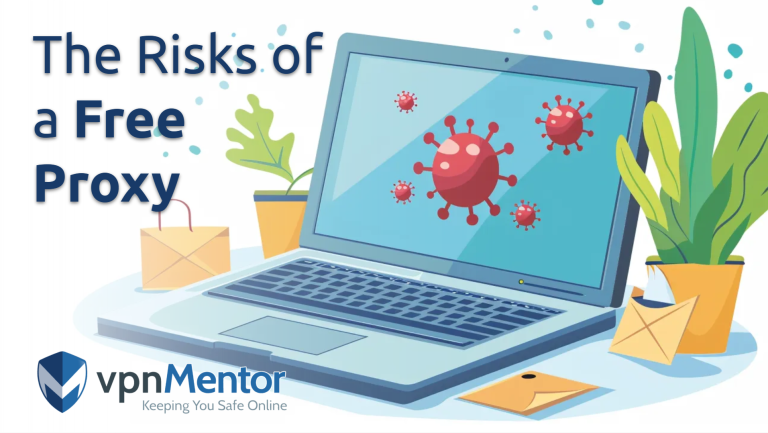




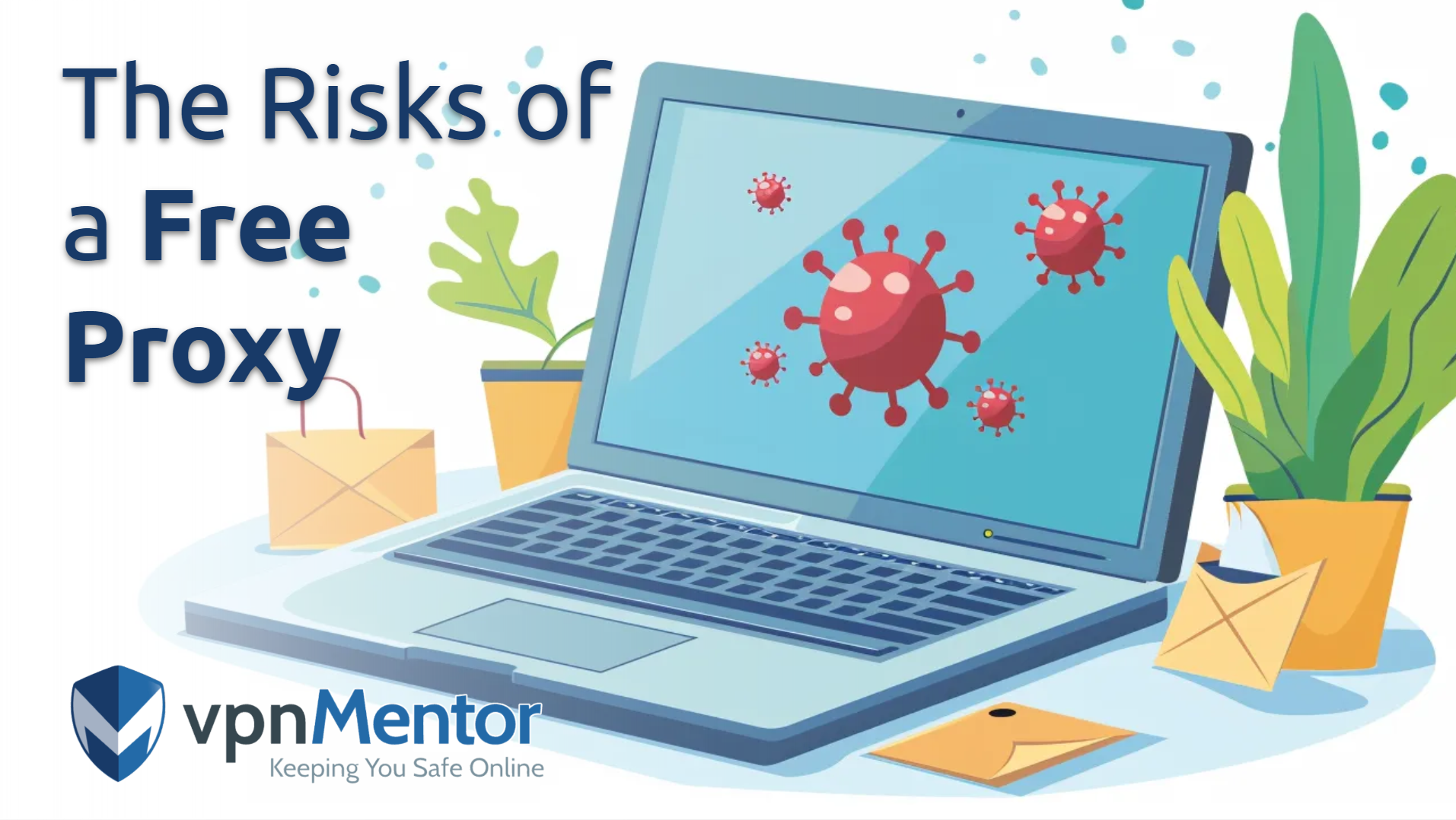

Please, comment on how to improve this article. Your feedback matters!